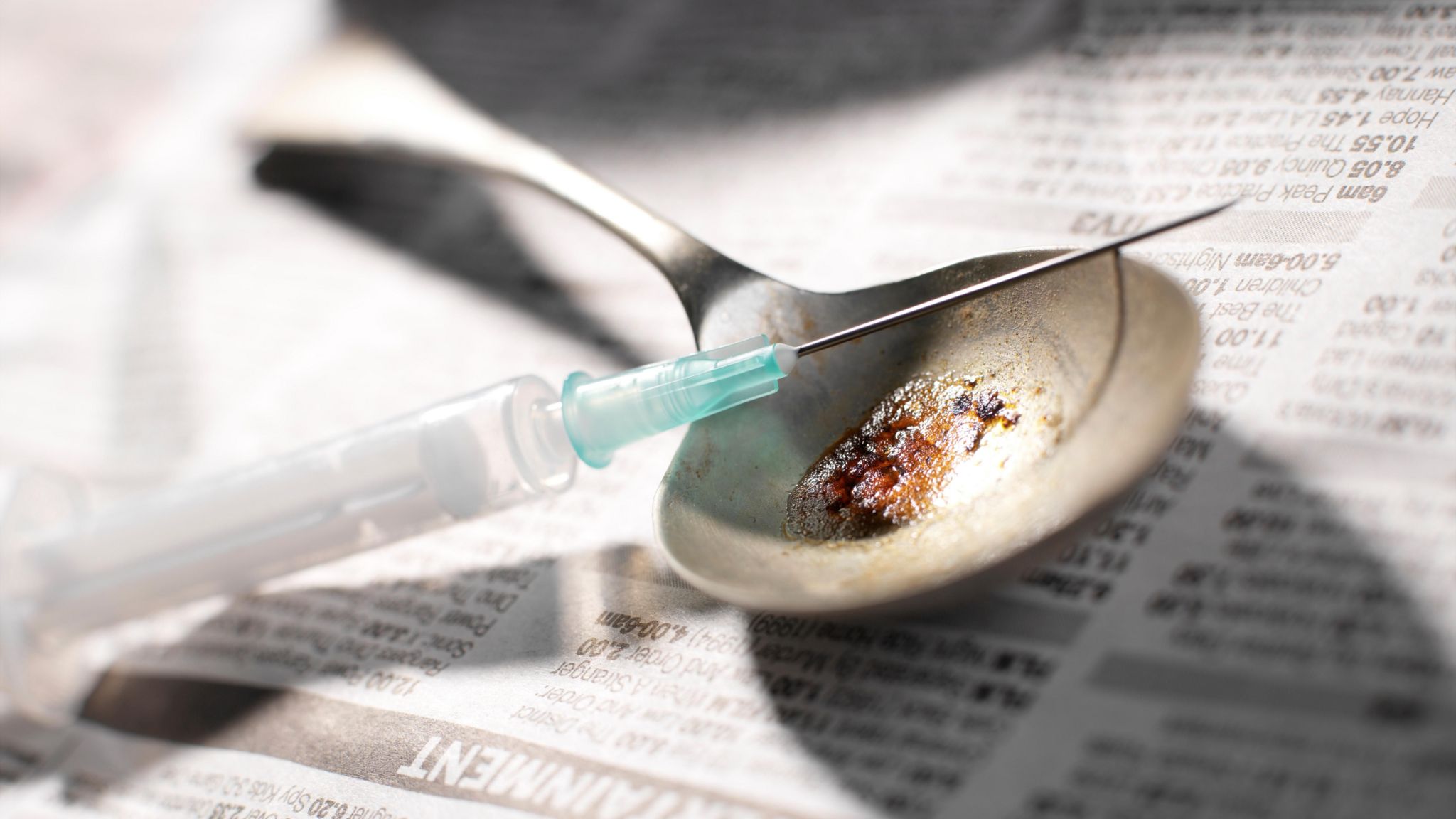Warning over opioid up to '500 times stronger' than heroin

The synthetic opioid can be up to 500 times stronger than heroin and has sparked a warning
- Published
A warning has been issued after a drug checking service found a synthetic opioid which can be up to 500 times stronger than heroin.
The alert, external, issued by Bristol City Council-commissioned organisation The Loop, said nitazenes had been found in multiple different samples in the city on Saturday.
They urged people to avoid using heroin alone and to call 999 immediately if someone overdoses.
It came as police in North Devon issued a major incident warning about an "unusually strong" batch of heroin after two men died.
The Loop's chief executive officer Katy Porter told the BBC that it was the first time the service, which has been operating regularly in Bristol since January, had had to put out an alert regarding nitazenes.
She said that while it was not possible to say at this stage whether or not the drugs checked were from the same batch as those that have hospitalised ten people in Devon, it was important that people used drug checking services so issues could be identified.
The Loop warning says nitazenes are 50 to 500 times stronger than heroin "with a heightened risk of overdose and no associated increase in euphoric effect".
Allow Twitter content?
This article contains content provided by Twitter. We ask for your permission before anything is loaded, as they may be using cookies and other technologies. You may want to read Twitter’s cookie policy, external and privacy policy, external before accepting. To view this content choose ‘accept and continue’.
The samples tested in Bristol on Saturday contained "potentially fatal" doses of nitazenes, they said.
"We really encourage people to use the service, because if we don't have substances submitted to us we can't check them," Ms Porter said.
"The more substances that are put forward, the more we are able to understand what's in circulation."
- Published27 April